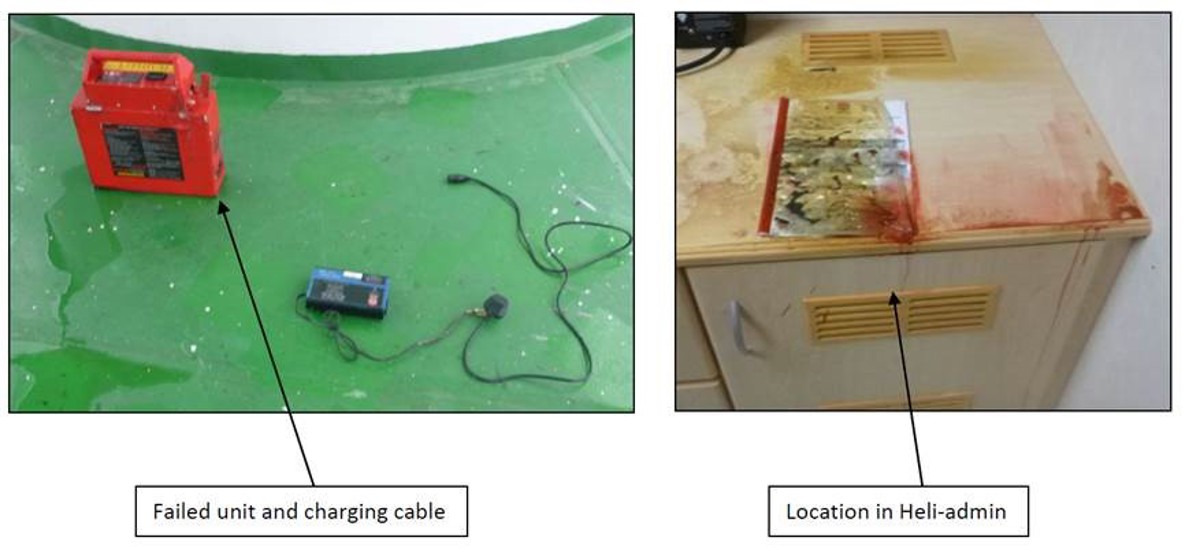Lithium batteries: Fire following the failure of a helicopter start power unit
- Safety Flash
- Published on 28 October 2019
- Generated on 2 March 2026
- IMCA SF 25/19
- 2 minute read
Jump to:
The vessel fire alarm panel indicated an activated smoke detector in the Heli admin office.
What happened?
Upon investigation, crew found the Heli admin office to be filled with smoke; they proceeded to raise the alarm immediately and inform the Bridge.
The fire alarm was sounded, and all personnel proceeded to muster. Emergency response teams were assembled and dispatched in full breathing apparatus to investigate the source of the smoke/suspected fire.
This was identified as a Portable Helicopter Start Power Unit (Lithium battery) which was located in the corner of the office and connected to a charging pack.
The unit and charger were safely removed and doused with fire hoses until cooled and deemed safe. A quick and professional response from crew prevented any further escalation and the incident resulted in no injuries to personnel.
The unit involved in the incident had been maintained in accordance with a planned maintenance regime and had displayed no signs of defect.

What were the causes?
A suspected failure of unit or charger caused overheating and potential fire hazard.
Our member has been in contact with the manufacturer, which suspects that a component in the charger failed.
What actions were taken?
- Failed unit was quarantined for safe disposal or returned to manufacturer for investigation.
- The vessel has now established a clearly marked external storage area for old batteries.
- All operators using similar units should ensure they are serviceable and show no signs of defect or deterioration.
What lessons were learned?
Devices fitted with Lithium batteries such as this should not be left unattended whilst charging.
This also applies to personal devices such as laptops, tablets and mobile phones.
Featured Safety Flashes
-
IMCA SF 27/17
25 October 2017
-
-
IMCA SF 16/16
27 June 2016
-
IMCA SF 16/08
30 October 2008
IMCA Safety Flashes summarise key safety matters and incidents, allowing lessons to be more easily learnt for the benefit of the entire offshore industry.
The effectiveness of the IMCA Safety Flash system depends on the industry sharing information and so avoiding repeat incidents. Incidents are classified according to IOGP's Life Saving Rules.
All information is anonymised or sanitised, as appropriate, and warnings for graphic content included where possible.
IMCA makes every effort to ensure both the accuracy and reliability of the information shared, but is not be liable for any guidance and/or recommendation and/or statement herein contained.
The information contained in this document does not fulfil or replace any individual's or Member's legal, regulatory or other duties or obligations in respect of their operations. Individuals and Members remain solely responsible for the safe, lawful and proper conduct of their operations.
Share your safety incidents with IMCA online. Sign-up to receive Safety Flashes straight to your email.